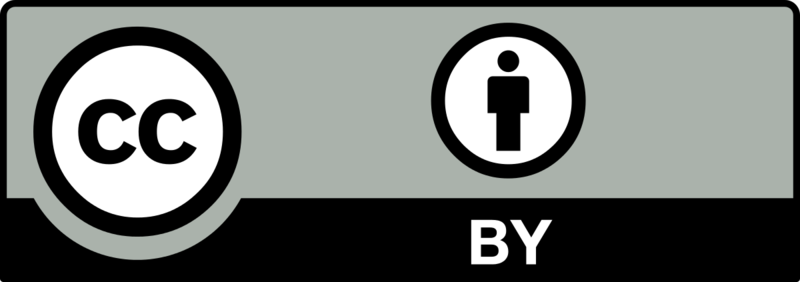Admirável Chip Novo under the lens of Dialogism and Actor-Network Theory
a cyborg manifesto
DOI:
https://doi.org/10.26512/les.v25i2.54289Keywords:
dialogism, Actor-Network, PosthumanismAbstract
The objective was to conduct an analysis through Latour's Actor-Network Theory and Bakhtinian dialogism to reveal dialogical relationships arising from the confrontation between the song Admirável Chip Novo and the asymmetry of modernity. For this purpose, a qualitative interpretative methodology was adopted. This exercise demonstrated an important dialogue with the theoretical assumptions of post-humanism. In the analytical considerations, it was observed that the song, through a perspective that framed modernity as a myth, revealed that the human being has always been hybrid and that this characteristic is consolidated as a facet of the constitution of being. Thus, it was concluded that technology is as ecological as language and that the future of scientific thought may lie in a symmetrical ontological perspective of society and the subjects/actors that constitute it
Downloads
References
AKRICH, Madeleine. Comment sortir de la dichotomie technique/société. Présentation desdiverses sociologies de la technique. In: Latour, B. and Lemonnier, P. (eds.). De la préhistoire aux missiles balistiques: L’intelligence sociale des techniques. Paris: Editions la découverte, 1994. p. 105-131.
BAKHTIN, M. Estética da criação verbal: Introdução e tradução do russo de Paulo Bezerra. 6. ed. São Paulo: Martins Fontes, 2011, p.307-336.
BAKHTIN, Mikhail. Os gêneros do discurso. Tradução Paulo Bezerra. São Paulo: Editora 34, 2016.
CALLON, Michel. The sociology of an actor-network: the case of the electric vehicle. In: CALLON, M.; RIP, A.; LAW, J. (ed.). Mapping the dynamics of science and technology: Sociology of Science in the Real World. Basingstoke: Palgrave Macmillan, 1986. p. 19-34
DESCARTES, René.Discurso do método. São Paulo: Martins Fontes, 1989.
FELINTO, Erik; SANTAELLA, Lúcia. O explorador de abismos. São Paulo: Paulus, 2012
FIORIN, José Luiz. Introdução ao pensamento de Bakhtin. São Paulo: Ed. Ática, 2006.
FRANCO, M. L. B. Pressupostos epistemológicos da avaliação educacional. Cadernos de Pesquisa, n. 74, Fundação Carlos Chagas, 1990. Disponível em: http://publicacoes.fcc.org.br/ojs/index.php/cp/article/view/1084/1089 Acesso em: 7 dez. 2023.
GAYUBAS, Augusto. Modernidade: Enciclopedia Humanidades, 2023. Disponível em: https://humanidades.com/br/modernidade/. Acesso em: 7 dez. 2023.
HARMAN. Graham. Prince of networks: Bruno Latour and metaphysics. Melbourne: RePress, 2009.
HARAWAY, Donna. A Cyborg manifesto: science, technology, and socialist-feminism in the late twentieth century. Socialist Review, v. 15, n. 2, p. 65-108, 1985.
HARAWAY, Donna, KUNZRU, Hari; TADEU, Tomaz. Antropologia do ciborgue: as vertigens do pós-humano, Belo Horizonte, Autêntica, 2000.
KONDER, L. A questão da ideologia. São Paulo: Companhia das Letras, 2002.
LATOUR, Bruno. Mixing humans and nonhumans together: the sociology of a door-closer. Social Problems, v. 35, n.3, p. 298-310, 1988.
LATOUR, Bruno. A esperança de Pandora: ensaios sobre a realidade dos estudos científicos. Bauru: EDUSC, 2001. ISBN 85-7460-062-8.
LATOUR, Bruno. Reagregando o social. Salvador: UFBA, 2012; Bauru, São Paulo: Edusc, 2012. 400 p.
LATOUR, Bruno. Jamais fomos modernos. Tradução de Carlos Irineu da Costa. 3. ed. São Paulo: Editora 34, 2013.
LAW, John. The structure of sociotechnical engineering: a review of the new sociology of technology. The Sociological Review, v. 35, n. 2, p. 404-425, 1987.
LEROI-GOURHAN, Albin. Le geste et la parole. Vol. 1: Technique et language, Vol. 2: Lamémoire et les rythmes. Paris: Albin Michel, 1964.
MARCHESINI, Roberto. Sempre fomos pós-humanos: filosofia pós-humanista e natureza humana. Instituto Humanistas Unisinos, 25 de março de 2021. Disponível em: https://www.ihu.unisinos.br/607810-sempre-fomos-pos-humanos-filosofia-pos-humanista-e-natureza-humana-artigo-de-roberto-marchesini Acesso em: 11 dez. 2023.
MERRIAM, Sharan B. Qualitative research: a guide to design and implementation. San Francisco: Jossey-Bass/Wiley. 2009.
MICHAEL, Mike. Reconnecting Culture, Technology and Nature: From Society to Heterogeneity. London: Routledge, 2000.
MIOTELLO, V. Ideologia. In: BRAIT, B. (org.). Bakhtin: conceitos-chave. São Paulo: Contexto, 2012.
MONTEIRO, Silvana Drumond. A dobra Semiótica e os agenciamentos maquínicos: por uma ontologia das Tecnologias da Informação e Comunicação. In: CERVANTES, Brígida Maria Nogueira (org.). Horizontes da organização da informação e do conhecimento. Londrina-PR: Eduel, 2012. Cap. 3.
PENNYCOOK, Alastair. Uma Linguística Aplicada Transgressiva. In: MOITA LOPES, L. P. (org.). Por uma Linguística Aplicada Indisciplinar. São Paulo: Parábola Editorial, 2006.p. 67-83.
PITTY. Admirável chip novo. In: Admirável chip novo.CD. Faixa 1-11. 2003.
RAJAGOPALAN, Kanagaraja. Por uma linguística crítica: linguagem, identidade e questão ética. São Paulo: Parábola, 2003.
SANTAELLA, Lúcia. Linguagens líquidas na era da mobilidade. 2. ed. São Paulo: Paulus, 2007. (Comunicação).
SEAVER, Nick. Knowing Algorithms. In: VERTESI, J.; RIBES, D. (org.). Digital STS: A Field Guide for Science & Technology Studies. Princeton Univrsity Press, 2019. pp.412-422.
SILVEIRA, Sérgio. Amadeu. Democracia e os códigos invisíveis: como os algoritmos estão modulando comportamentos e escolhas políticas. São Paulo: Edições SESC-SP, 2019.
SLOTERDJIK, Peter. Regeln für den Menschenpark: Ein Antwortschreiben zu Heideggers Brief über den Humanismus. Frankfurt/Main: Suhrkamp, 1999.
TONELLI, Dany Flávio. Origens e afiliações epistemológicas da teoria ator-rede: implicações para a análise organizacional. Cad. EBAPE.BR, v. 14, n. 2, Artigo 9, Rio de Janeiro, abr./jun. 2016. p. 377-390.
VOLOCHÍNOV, V. N. A construção da enunciação. In: VOLOCHÍNOV, V. N. A construção da enunciação e outros ensaios. São Carlos: Pedro & João Editores, 2013, pp. 157-188.
ZUBOFF, Shoshana. The Age of Surveillance Capitalism: The Fight for a Human Future at the New Frontier of Power. New York: PublicAffairs, 2019
Downloads
Published
Issue
Section
License
Copyright (c) 2024 Cadernos de Linguagem e Sociedade do Programa de Pós-Graduação em Linguística da UnB é licenciado sob uma Licença Creative Commons Atribuição-Uso não-comercial-Vedada a criação de obras derivadas 3.0 Unported.

This work is licensed under a Creative Commons Attribution-NonCommercial-NoDerivatives 4.0 International License.



